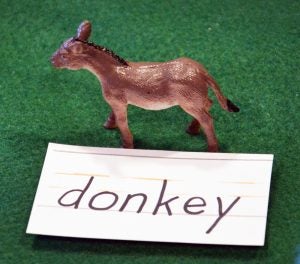Volunteers continue making local reading day camp a reality
Published 7:42 am Thursday, June 7, 2018
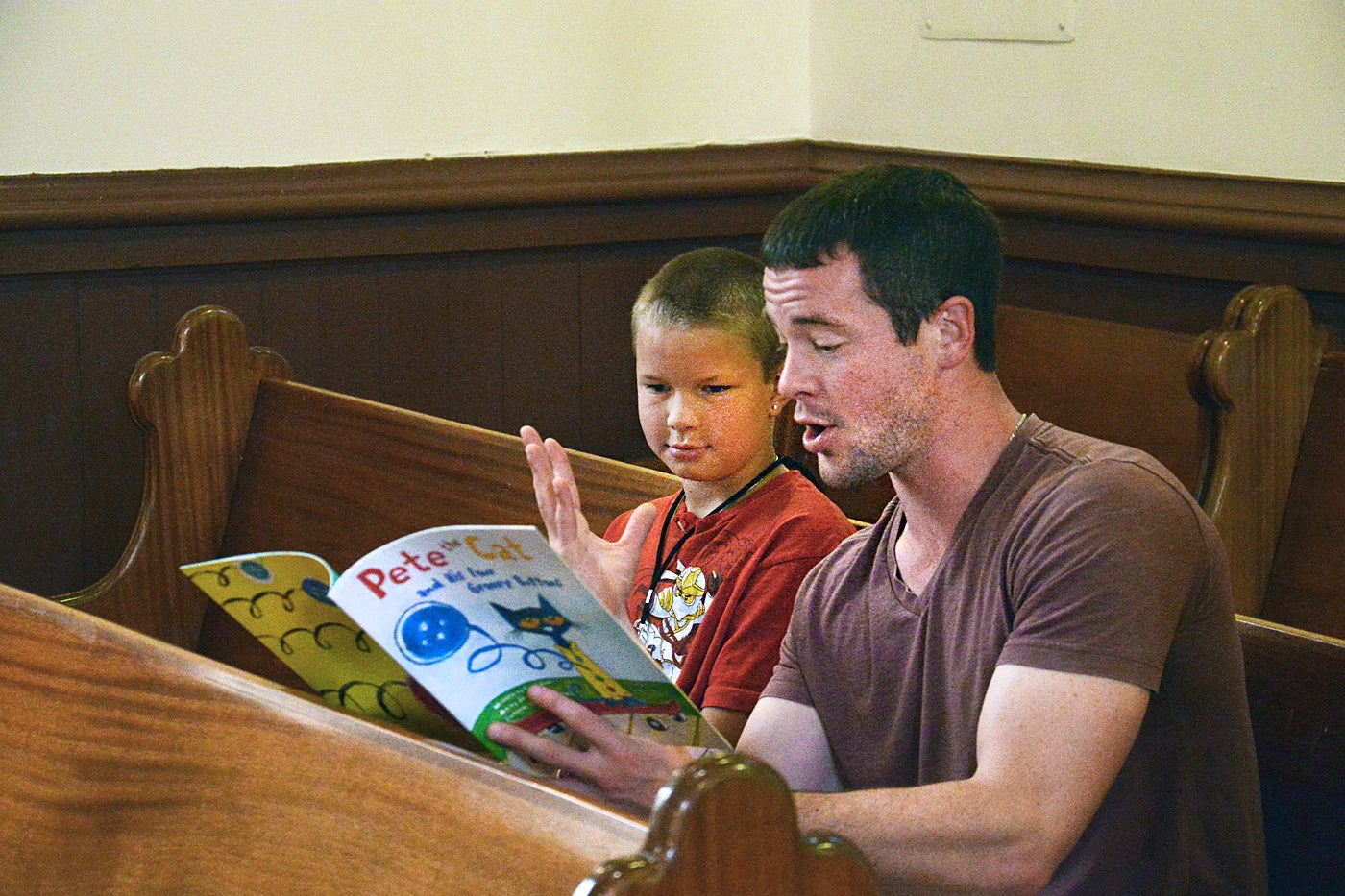
- (Robin Hart photo) On Tuesday morning, volunteer Reid Williams, reads to Douglas Miller who is attending Trinity Episcopal Church's annual summer reading camp.
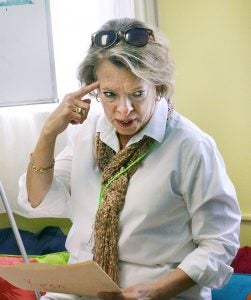
Retired first-grade teacher Carolyn Montgomery, asks students in her phonics learning center to put the sounds, “in your brain bank.”
Trinity Episcopal Church has turned its small Sunday school rooms and cozy historic sanctuary into a school house and day camp this week.
Nearly 20 students in first through third grades are attending Trinity’s annual summer reading day camp. Eligible campers are recommended to attend this free camp by their teachers, schools or family resource coordinators, said camp director Ginny Eklund.
The event began nearly 20 years ago and focuses on helping young students who are “delayed or reluctant readers” Eklund said.
If students are struggling in school and reading at a level lower than their peers, of course they are reluctant readers, she said.
However, the reading camp is also very similar to what some people consider a traditional day camp. Breakfast and lunch are served every day with snacks in between. Campers go on field trips and swim at Anderson-Dean Water Park in Mercer County. And they have the opportunity to learn new songs and be creative.
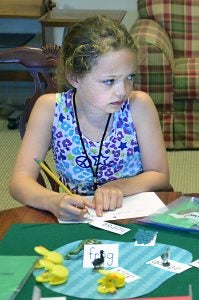
Kinley Tompkins writes the word “horse” on a page at the writing center.
Even the volunteers are creative. Allison Ramsey has written two short stories just for the campers. One is called, “Our Momma is a Llama” which is a true story about how two lambs and a donkey were adopted by a blind llama named Sugar. The pages have been copied with plenty of space between passages where each camper will illustrate what they have read.
On Friday, campers are being treated to a picnic on a farm and a hay ride.
To balance the academic work with fun, this year’s camp has a farm animal theme, Eklund said. On Monday, the first day of camp, students were divided into five teams — the Horses, Cows, Donkeys, llamas and Pigs. Then they were taken by buses (drivers and vehicles are furnished by First Christian Church) to Dr. Bart and Allison Ramsey’s farm where campers got to pet a llama and horse, see Scottish Highlanders grazing in the field and watch squirming piglets.
After getting excited about the animals they’d seen, students returned to Trinity where teachers incorporated the animals with their reading lessons.
Campers also are reading two books in Kate DiCamillo’s “Mercy Watson” pig series.
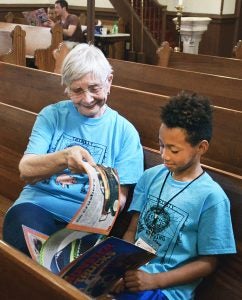
(Robin Hart photo) Diane Meshako reads to Ozaylin Alarcon Tuesday morning.
The pleasure reading session, also called “buddy reading,” is where students select from a variety of books, find a comfortable spot and listen to the story as a friendly volunteer reads to them. Then they practice reading aloud with their buddy.
The reading camp lasts from 8:30 a.m. to 4 p.m., with mornings focused on academics and afternoons full of activities, “So the students can get a day camp experience,” Eklund said. Many of the students would probably not have the chance to go to a summer day camp if it wasn’t for this free camp, she said.
Eklund then grabs a large, school hand bell and clangs it throughout the building, a task she does every 30 minutes, signaling students and teachers it’s time to move to the next learning center.
Eklund sat back down at a table in the church’s fellowship hall where everyone congregates for meals and snacks, and said the reading camp is structured for students who need extra tutoring with their reading skills and blends “traditional” day camp experiences to enrich the campers’ attitudes where they associate reading with fun. She said all of the volunteers want to show campers that reading is an enjoyable skill they can build on throughout their lives.
Eklund said there are about 50 volunteers from Trinity and the community who help to make the reading camp a reality. And it takes about $3,500 to support the week-long session, which includes books, food and travel expenses.
“We don’t do magic with our reading instruction. But maybe we can give them hints,” Eklund said. The best thing they can do, she said, is help students have a more positive attitude toward reading, and develop relationships where the students learn from positive role models.
